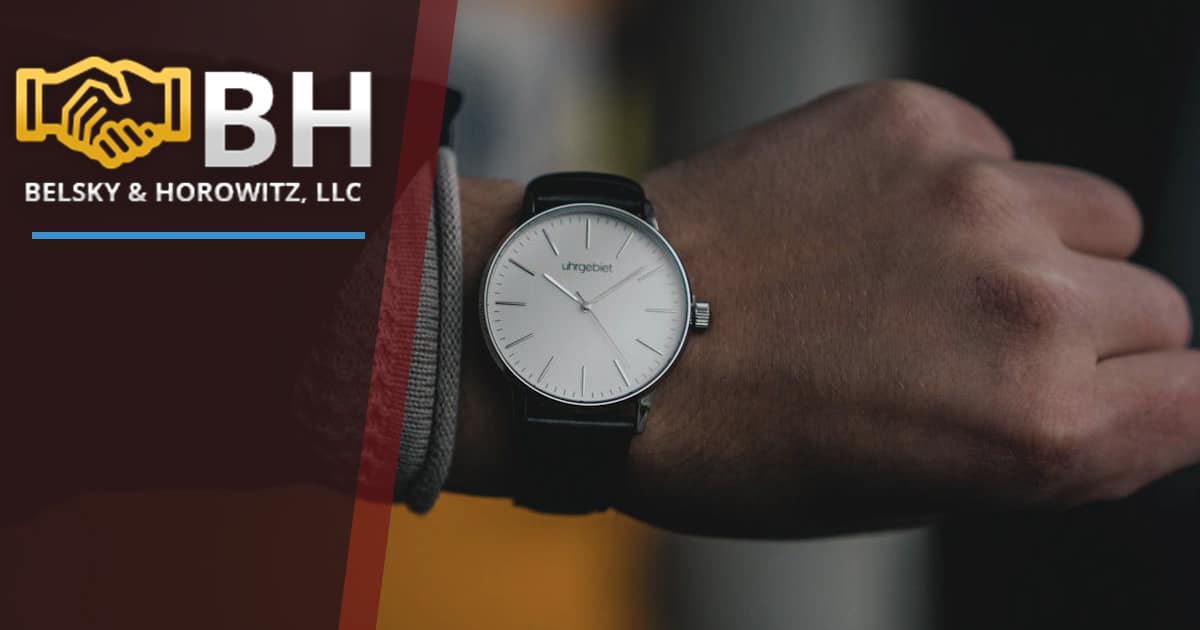When Does Workers’ Comp Stop Paying Benefits?

Workers’ compensation is a vital safety net for employees who suffer work-related injuries or illnesses, providing them with financial support and medical benefits.
However, understanding when these benefits may cease is essential for workers in Maryland.
Understanding Workers’ Compensation Benefits
Workers’ compensation benefits in Maryland typically include coverage for medical expenses, wage replacement payments, vocational rehabilitation, and compensation for permanent disabilities.
These benefits are designed to help injured workers recover, regain their health, and return to work as soon as possible.
Maryland’s Worker’s Compensation Commission states:
“To be covered under workers’ compensation, an employee must have received an accidental personal injury while working (‘on the job’). The injury must have arisen ‘out of and in the course of employment’ in the words of the law. Not all workplace injuries are compensable. If your injury is determined to be covered, then the employer or the employer’s insurance carrier will provide medical and hospital treatment and partial income replacement benefits until you can return to work or until you reach maximum medical improvement.”
Temporary Total Disability Benefits
Temporary total disability (TTD) benefits are provided to employees who are temporarily unable to work due to a work-related injury or illness. These benefits typically replace a portion of the injured worker’s lost wages until they are medically cleared to return to work or reach maximum medical improvement (MMI).
In Maryland, TTD benefits generally stop once the injured employee returns to work or reaches MMI.
Temporary Partial Disability Benefits
Temporary partial disability (TPD) benefits may be available to workers who can perform some work but earn less than their pre-injury wages due to work-related restrictions or limitations.
TPD benefits provide partial wage replacement to make up for the difference in earnings. These benefits may cease when the injured worker’s earning capacity is restored, or they reach MMI.
Permanent Partial Disability Benefits
Permanent partial disability (PPD) benefits are awarded to employees who sustain permanent impairments or disabilities as a result of a work-related injury or illness. These benefits compensate the worker for the permanent loss of function or impairment they have suffered.
PPD benefits may stop once the injured worker receives the full amount of compensation specified by law or reaches MMI.
Permanent Total Disability Benefits
Permanent total disability (PTD) benefits are available to workers who are permanently and totally disabled and unable to perform any gainful employment as a result of a work-related injury or illness.
PTD benefits provide ongoing financial support for the injured worker’s lifetime.
However, these benefits may cease if the worker is deemed capable of returning to work or engaging in gainful employment.
Death Benefits
In cases where a work-related injury or illness results in death, Maryland’s workers’ compensation provides death benefits to the surviving dependents of the deceased worker.
These benefits typically include compensation for funeral and burial expenses, as well as ongoing financial support for dependents such as spouses and children. Death benefits may stop once the surviving dependents are no longer eligible or reach a certain age.
Reaching Maximum Medical Improvement (MMI)
Maximum medical improvement (MMI) is a critical milestone in the workers’ compensation process.
It occurs when the injured worker’s medical condition has stabilized, and further medical treatment is unlikely to result in significant improvement.
Once an injured worker reaches MMI, they may be evaluated for any permanent impairments or disabilities, and their eligibility for ongoing benefits may be reassessed.
Return to Work
Workers’ compensation benefits may cease if the injured worker is medically cleared to return to work and earns wages equal to or greater than their pre-injury earnings.
In Maryland, if the injured worker returns to work at a lower-paying job due to work-related restrictions or limitations, they may still be eligible for partial wage replacement benefits to make up for the wage difference.
Maryland also offers vocational rehabilitation programs, funded by the U.S. Department of Education, for those who are unable to return to their former type of work due to an injury. The state offers a Managed Return to Work (MRTW) Program, which allows for short-term transitional duty assignments as a bridge back to full normal work.
Settlement Agreements
In some cases, workers’ compensation claims may be resolved through a lump-sum settlement agreement between the injured worker and the employer’s insurance company.
Once a settlement is reached and approved by the Maryland Workers’ Compensation Commission, ongoing benefits may cease, and the injured worker receives a one-time payment to resolve their claim.
Navigating the complexities of workers’ compensation benefits in Maryland can be challenging, especially for injured workers who are already dealing with the physical, emotional, and financial impact of a work-related injury or illness.
Understanding when workers’ comp stops paying benefits is crucial for ensuring injured employees receive the support and compensation they rightfully deserve.
By staying informed about your rights and options, you can effectively advocate for yourself and protect your interests throughout the workers’ compensation process.





